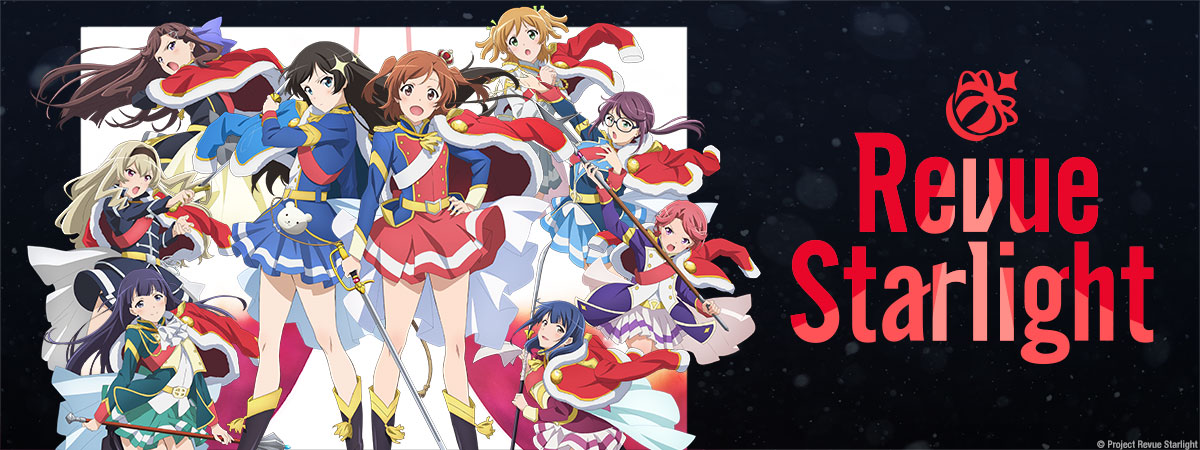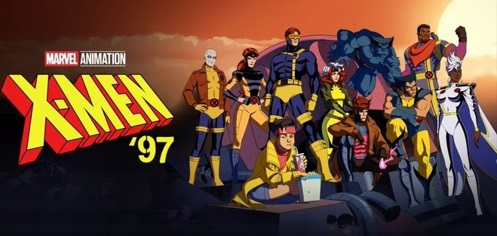English Dub Review: Revue Starlight “Stage Girls”
Let me tell you a story.
Overview
In Japan’s most elite acting high school, a group of second-year students is all obsessed with performing in a musical called Starlight. One student, in particular, Karen Aijō—a chronic underachiever—is especially consumed by the show, because of a promise she made to a long-lost childhood friend, Hikari Kagura, after they saw it together. When Hikari shows up, after spending twelve years in England, she not only shakes up the school’s status quo but introduces Karen to a violent underground audition process that could be the real test of both girls’ star quality.
Our Take
“Stage Girls” was a fairly interesting pilot, but Revue Starlight’s most fascinating elements lie in its existence as a multimedia franchise. Anime is nearly always adapted. Most of it is translated from a manga, which, as often as not, is itself translated from a light novel. The anime industry is incredibly corporatized and, much like its American filmmaking counterparts, likes to bet on a sure thing. Revue Starlight, however, has a path to production the likes of which I’ve never seen before.
The franchise began as a musical. It was performed over a single weekend in September of last year at the AiiA 2.5 Theater Tokyo. Upon researching the theater, I learned that it is often a home for musical adaptations of anime, and the broadcasts are streamed to movie theaters across Japan. Besides being jealous of Japan’s sophistication over the US in this regard, I was surprised to find that Revue Starlight was not an adaptation of an anime, but that the anime seems to be, at least somewhat, an adaptation of the musical.
By the beginning of this year, three separate manga were created to promote the Revue Starlight brand: a mainline manga called Shōjo☆Kageki Revū Sutāraito, a four-panel comedic spinoff called Yonkoma Starlight, and a slice-of-life prequel called Shōjo Kageki Revue Starlight Overture. It’s by no means uncommon for a manga property to have all three of these types of adaptations running at once, but Sutāraito and Yonkoma began on the same day, and Overture started running just over three weeks later.
This entire empire-in-the-making is the brainchild of gaming company Bushiroad, who were responsible for Tantei Opera Milky Holmes, Neppu Kairiku Bushi Road, and Bang Dream, the first of which also had a similar multimedia blitz in 2010 (albeit a year after the original property, an internet radio drama, had begun) and the last of which is also about high school girl performers. It seems as if Starlight is the apotheosis of both the company’s demographic research and brand-launching strategies, as a tenth anniversary present to itself.
I initially thought that Starlight, which has a plot that I still can’t divine, was going to be the subject of the stage show, and that Revue Starlight would function as a behind-the-scenes look at how a specific production would be mounted by the characters, but I was wrong. The musical is split into two acts. The first tells the same story as the anime (and presumably the mainline manga) and the second is a series of songs from Starlight itself performed like a concert.
This far in, I suppose I should talk about the actual business of the plot, but I found that much less interesting. It’s a typical childhood promise story. Hikari is a naturally gifted performer, and Karen doesn’t seem to be until the plot demands that she is. The supporting cast all have distinct looks, and I’m sure will have interesting backstories as the twelve episode run moves along. I already really like Mahiru, Karen’s shy roommate who’s immediately jealous of Hikari. I don’t quite understand the combat element of the underground auditions yet. It doesn’t seem to be scripted because Hikari is definitely surprised by Karen’s arrival at the end of the episode, but I’m not really sure why improv stage combat talent would be the determining factor in the casting for a musical. I’m sure there will be many heartfelt speeches and info dumps to help me figure it out, however.
I definitely enjoyed this pilot and do recommend it to anyone who wants a competition anime for women that exists in the not-quite-Yuri tradition of blushes and euphemism, but I had a much better time trying to figure out exactly what this media behemoth was about. Revue Starlight certainly has my attention, and this series of reviews will attempt to divine the goings-on behind-the-scenes about as much as what the ladies do onstage.



























Hi Ashley, thank you so much for reading and we love the feedback. Note that on that day we had 14th posts go up and only ten posts show on the front page, so it's possible the preview had already been archived by the time you got to it. One recommendation would be to add our RSS feed to your favorite news aggregator service like Feedly, this way you get all of the latest posts!